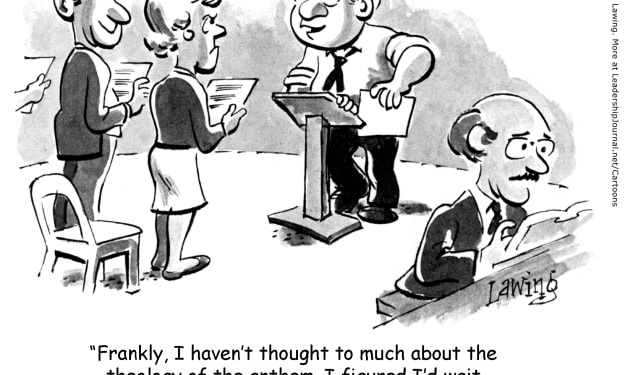A Modern Importance for Philosophy
Too Much Specialization

A Modern Importance for Philosophy
By Brian Smithberger
Submission Date: 03/10/2020
Institution: Domuni University
Contents
Introduction
1. A Moment for Philosophy of Science
2. A Breathe of Technology and Engineering
3. Mathematics
4. Leadership, Language Arts, and Legal Disputation
A. Leadership
B. Language Arts
C. Legal Disputation
Conclusion
Bibliography
Introduction
In times past, as disciplines and specializations became their own area of expertise, there has been a falling away from the importance for philosophy. It is not about the importance ‘of’ philosophy, but so much more the importance ‘for’ philosophy. The great thinkers of history found their knowledge with philosophy before examining the world further within one particular concern of philosophy, such as mathematics, physics, epistemology, metaphysics, linguistics, or rhetoric, to name a few. However, contemporary methods have placed an emphasis not on philosophy but upon minimal standards for a young scholar to embark on a journey of knowledge by basics. Hence, the modern importance for philosophy is enhancing the scholars logic, deductive reasoning, methods of research, and aptitude for discourse on matters at hand for science, technology, engineering, mathematics, leadership, language arts, and legal disputation.
1. A Moment for Philosophy of Science
Science education is important for understanding the natural world and humanity’s ability to study and comprehend it. However, as of late, some scientists have shunned philosophy as a useless art having faded with the shifting of the sands. It is as though the high-level mathematics and analytic geography suffice their observed confirmation of space, time, or the hope of understanding the dark matter with or without a deeper revelation of quantum physics. However, philosophy as a cornerstone to the building of scientific exploration opens the mind of the scholar to explicate the difficulties through induction. As a philosopher, inductive reasoning in science is not rightly justified and therefore needs to be reasoned through evidence. It is then possible to begin choosing the appropriate hypothesis to include a comprehensive theory. Moreover, it is through philosophy that eh young scholar receives a thorough education in reasoning that encourages the appropriate method of scientific inquiry.
If current stereotypical prejudices play out then the philosopher knows nothing of science, so therefore has no standing to authenticate or debate a scientific method. However, if the educating institution is authentic, then history demands the opinion of philosophy because it is from philosophy that the values of science are intrinsic. The term physics has its origin in natural philosophy. It is through natural philosophy that inductive reasoning is evidential. The historical records of observation by great minds of the past were written by philosophers, be they natural philosophers, rhetoricians, or political philosophers. Therefore, it is not science that can speak philosophically, but the philosopher can speak profoundly scientific. It is a matter of historical awareness and not academic arrogance.
The divisions within a university or college are for administrative purposes. They are not to separate the humanities from the sciences as particular, exclusionary abstracts of minds in the world. They are meant to collaborate and be dynamic. Subrena E. Smith, a philosophy educator at the University of New Hampshire says clearly,
“College students tend to think that departmental divisions mirror sharp divisions in the world, and so they cannot appreciate that philosophy and science, as well as the purported divide between them, are dynamic human creations…Physics, the most secure of the sciences, was once the purview of ‘natural philosophy’.” (retrieved from: https:\\bigthink.com/U/SubrenaSmith).
Again, it is quite clear that scientific methods, even outcomes, are foundations ‘for’ philosophy. A bias against philosophy is a bias against all disciplines. If the methods of teaching are not modified to either include a discussion on philosophy or include a philosophy course, it is detrimental to the scholar not having a relevant basis to scientific theory and practice. It inhibits the scholar from having profound questions to science, for science, leaving only the grouping of scientific items as ‘facts present’ and not the methodology to objectively question why those supposed facts are and from where they came.
2. A Breathe of Technology and Engineering
With bias thought looming so prevalent in the disciplines, especially concerning the sciences toward philosophy, it is somewhat difficult to perceive the philosophical influence. However, when made available to observation and thought such as Subrena Smith did with her student body, i.e. she encouraged the student scholars to look at something else without bias, it is more clear that a philosophical mindset is necessary. The mindset of the philosopher is to analyze, not merely ask why, then interpret the analysis through strong and comprehensive rhetoric. If technology and engineering faculty fail to introduce the philosophical mindset, it could be further detrimental to the discipline and society. Another example of the eye-opening moment of Smith’s sudent body is in the moment that the student gentry realized that according to the pre-conceived ideas of previous thinkers (and the current instructive methods) they could only conceive of the observations by way of the training given to them. (Smith, 2017, pg. 3).
Technology has ground in philosophy just as well as engineering. To speak of technology progressing over the centuries from philosophy, we merely look to the historical thinkers. According to Universe Today, in an article published through them by NASA/JPL News Release in 2004, Einstein’s general theory of relativity is confirmed by 50 times the amount of data accuracy previous. This is due to the spacecraft Cassini-Huygens mission and spacecraft. The collaboration was NASA and the Italian Space Agency. (retrieved from: https:\\www.universetoday.com). Einstein was a philosopher, as well as a physicist, as he believed that philosophical inquiry is the foundation to understanding nature. He has been quoted as saying that, “As a young man I preferred books whose content concerned a whole world view and, in particular, philosophical ones. Schopenhauer, David Hume, Mach, to some extent Kant, Plato, Aristotle.” (retrieved from: https:\\en.wikipedia.org). Einstein, in replying to a letter written to him by Dr. Robert Thornton, a philosopher of science, offered:
“A knowledge of the historic and philosophical background gives that kind of independence from prejudices of his generation from which most scientists are suffering. This independence created by philosophical insight is-in my opinion- the mark of distinction between a mere artisan or specialist and a real seeker after truth.” (Einstein to Thornton, 7 December 1944, EA 61-574).
Therefore, it is highly noticeable that philosophy instructs technology, science, even engineering. Even Aristotle’s logic is ground work for the logic behind computer science. The philosophical study of the mind-body problem gave neuropsychology birth in the humanities discipline, further fueling technology within to produce brain-imaging technology. If science and technology have been driven there, philosophy has steered the vehicle.
In 2006 and 2007, respectively, the Royal Academy of Engineering in the United Kingdom hosted a series of seminars to collaborate philosophy with engineering. In the seminar ‘Engineering and Truth’, Peter Lipton makes an exploration of the essence of engineering with a comparison to philosophical understanding of scientific knowledge. Mr. Lipton makes the argument that the:
“[R]eal situation may be more complex. Surely an engineer will want to know that the theory is accurate and reliable if that theory is employed in the design of some artifact, and what better guarantee of reliability is there than a theory’s truth?” (Retrieved from: https:\\www.raeng.org.uk/policy/engineering-ethics/philosophy, 2020).
He concludes that there is a need for more relational exploration between engineering and philosophy of science, i.e. philosophy.
The outline of volume 1 of the Royal Academy’s series of seminars highlights that when a philosopher questions knowledge, it is not about the how-to of knowledge but the why and how-do-we-know of the knowledge. Using working theory of Electrical Engineering, if it was not studied to know Ohm’s Law in regards the truth of his ‘wheel’, then a person could be hurt, if not fatally, if a chosen design employed 480 volts of electricity, with 50 amperes of current, without at least 24 kilohms of resistance in the circuit produced by the load components (hypothetically speaking). According to Sir Tony Hoare’s paper ‘The Logic of Engineering Design’, most likely programmers in computer science are unaware of how their programs actually function. His conclusion is that through scientific knowledge, produced by philosophical propositional logic, the programmer can have a demonstrable and truly comprehensible understanding of the working knowledge of engineering design of computer programs. Furthermore, it is becoming clearer that philosophy has been in the background at work, and the further need of philosophy is greater to develop knowledgeable thinkers in every discipline.
3. A Comment on Mathematics
What science, what discipline would be complete without mathematics? Math spans every area of thought to codify or explain statistics, finance, engineering, computer science, law, systems, theology, design, artificial intelligence, robotics/automation controls technology, or any discipline not mentioned, respectively. If one would look to the philosophy of mathematics, it is apparent that philosophy looks to study the “assumptions, foundations, and implications of mathematics”. (https://en.wikipedia.org/wiki/philosophy_of_mathematics). It concerns itself with placement of math in a person’s life. Each and every discipline is concerned with the placement of an object or subject in the universe. Therefore, it does not exclude mathematics and therein the use of math in life, and for life.
The logic and structure of mathematics is unique but without parallel to philosophy, hence its foundation is in philosophy. Ancient thinkers such as Pythagoras define the use of geographical mathematics as the intuition to build according to resources and space. Historically, Greek philosophers associated geometry with configurations of humanity and units of multiplicity, without regard to proposed heretics (such as Hippasus). Mathematics and logic are siblings that brought into development the 19th and 20th centuries. Notions such as axioms, proof, and proposition being true of a mathematical object were now being formalized and employed din the disciplines, whether humanities, social sciences, or sciences. Even with Godel, mathematics took on a new meaning including propositions that were self-referential and entailed new studies called ‘metamathematics’, further known as proof theory. According to Platonic mathematics then the realism of mathematics is that entities are abstract and therefore eternal, unchanging causal properties.
To sum the historical philosophers, mathematics approximates an unchanging reality. Pythagoreans’ of ancient Greece believed the world was generated by numbers, hence through a matrix of mathematics. The only option is to assume Ultimate Ensemble and postulate that all structures of the world, of reality exist through mathematical genius that expands to the physical universe intrinsically, ‘for’ philosophy’s sake.
A Fellow in Education: Leadership, Language, Legal Disputation
A. Leadership
A student is heard to say that ‘facts are facts’. To identify something that identifies itself, leaves no room for debate, interpretation or disagreement. It is the modern teaching of science. So, if an individual endeavors on the discipline of a Bachelor level of Science in Engineering, then the facts are spoken for and theories must be accepted as interpreted. However, there are facts that a young scholar must master to excel in any discipline: and that is of philosophy. It is crucial to educate in the sciences, social sciences, and humanities. It is of the upmost importance to teach the conceptual, interpretive, methodological, and ethical foundational principles of philosophy. Philosophical matters transpire and transfer to all disciplines, including management, language, and the legal environment.
A critical education in philosophy is expository to management or leadership, However, it is an accepted belief that the student body is in need of “greater scientific and technological literacy than they did before to function in today’s society and economy”. (Teeple, J.E., Toward a State-Critical STEM Education, 2018). It is agreed that this statement is true for the advancement of technological and engineering skill, it is also over emphasizing the need to have most, if not all, disciplines treated as science and not art. The philosophy of leadership which generally be treated as management is a combination of leadership and philosophy. It is noted that the Oxford Dictionary defines leadership as, “a theory or attitude that acts as a guiding principle for behavior”. Also, the Oxford Dictionary defines leadership as, “the action of leading a group of people or organization, or the ability to do this”. Therefore, if combined the two define the philosophy of leadership is to have the behavior (action) to guide (lead) as an attitude or theory of an organization.
B. Language
Something paramount to leadership is the ability to communicate effectively and efficiently. The means of communication is language. Therein, it is of the upmost importance for a manager, leader, orator, or instructor to have a strong lingual position where the statements are precise, concise, as well as informing. An expedient and well-comprehensive approach to making an effective leader or manager is to instruct thoroughly in analytic philosophy. This area of philosophy expounds on the nature of meaning, intentionality, referential statements, the constitution of sentences, concepts (particular learning), and thought. The 2011 McNair Scholar, Ashley Karcher, explains in her introduction, “The deficiency of philosophical development across the disciplines leads to the perpetuation of the enduring conflicts within American higher education, as these conflicts are traced back to the ancient era. Students across many disciplines are deprived of the opportunity in their fields to regularly exercise their philosophical capacities, such as argument analysis, logical reasoning, decision making, identifying assumptions underlying methods and beliefs, sympathetic understanding, and adroit perspective shifting can foster a transformative learning experience that improves the personal, social, ethical, and cultural dimensions, while enhancing the quality of professional life”. (Karcher, A., pg.2).
To sum it up any better is difficult, yet Ms. Karcher is outlining the lack of analytic analysis and deductive reasoning of today’s professionals. These professionals lack logic, sympathy, and are without an aptitude to think outside of the teaching box they are inside. Once an individual is taught a method, it seems a rare occasion when that methodology is questioned and new solutions to old problems are revealed. An amazing contribution of philosophy is to shine the light on the fact that a thinker is not a philosopher per se, and without the foundation of philosophy the individual is another ‘trained’ person in the discipline. In regards to leadership or language, it is certainly not sufficient to end there. Nor is it even more sufficient to believe the letter of the law is accepting of mediocre display of logical reasoning.
C. Legal Disputation
A groundwork, a cornerstone, and a capstone in philosophy is the sharpening of a great counselor at law. Additionally, lack thereof is the making of a struggling attorney who must “plea’ bargain a case load to make a living, or fail to acquire adequate economic remedy for a client. The ample ability to analyze the law is the intuition to know the difference between law and non-law. This has its place in knowing the code of law as separate from the process of law in a courtroom. In its purer form, the philosophy of law is the conceptual analysis of law, whereas other areas of philosophy are the natural sort. Therefore, it is lucrative and crucial for the attorney to have an education in philosophy.
Further proof of this fact is the skill philosophy transfers to an individual to argue facts by knowing what a truth statement consists of, and the core meaning behind references. Moreover, mastering linguistics gives the counselor an oratory professionalism that further gives an intrinsic value to his or her expertise. It is imperative, then, that it be recognized that philosophy should be highly regarded in law. Without such emphasis the counselor of tomorrow will fodder behind the bar and deprive persons of their rights and liberties by failing to protect them. John Stuart Mill’s ‘harm principle’ is one such example for an educated attorney in philosophy,
“[T]he sole end for which mankind are warranted, individually or collectively, in interfering with the liberty of action of any of their number is self-protection. The only purpose for which power can rightfully be exercised over any member of a civilized community against his will is to prevent harm to others.” (Mill, On Liberty, pg.12-13).
So, without the clarity given to a discipline, particularly that of law, through philosophy, it is detrimental to the young scholar and society. It fails a certain Litmus test, if the scholar is influenced to law but refrains the necessary decision for its rightful education, if so then the scholar, and thereby society, is hurt.
Conclusion
Historically, disciplines and specializations evolved into their own area of expertise and left a falling away from the importance of philosophy in those disciplines. It is about the importance ‘for’ philosophy that instills the practical applications of great thinkers in history according to philosophy. These applications are concerning to science, technology, engineering, mathematics, leadership, language and legal disputation. They are the conglomerate of society that places an emphasis upon minimal standards, and not of standards of reason and logic instilled by philosophy. In all, it leaves the breathe empty and yearning for the discussion of the modern importance for philosophy.
Bibliography
1. Smith, Subrena, BigThink.com/U/SubrenaSmith, 21 November, 2017.
2. www.universetoday.com
3. www.wikipedia.org
4. www.raeng.org.uk/policy/engineering-ethics/philosophy, 2020
5. https://en.wikipedia.org/wiki/philosophy_of_mathematics
6. Teeple, J.E., “Toward a State-Critical STEM Education”, 2018.
7. Karcher, Ashley Lee (2011), “Philosophy’s Contribution Toward Learning Beyond Specialization”, McNair Scholars Journal: Vol. 15: Issue 1, Article 5.
8. www.iep.utm.edu/law-phil/
9. Stuart, John Mill, “On Liberty”, 1859.
About the Creator
Dr. Brian Smithberger
Doctor of Philosophy-Religion/History, Controls Engineer
Electrical Engineer
Enjoyed the story? Support the Creator.
Subscribe for free to receive all their stories in your feed. You could also pledge your support or give them a one-off tip, letting them know you appreciate their work.






Comments
There are no comments for this story
Be the first to respond and start the conversation.